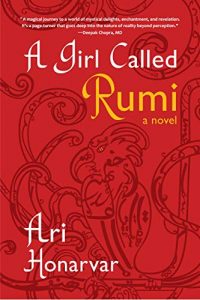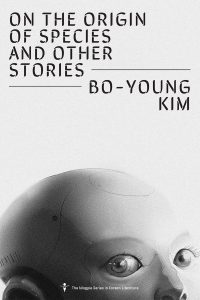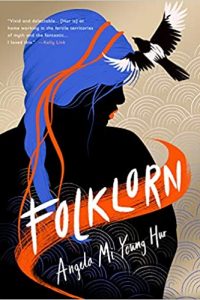Russell Letson reviews Walter Jon Williams
 The nine stories in Walter Jon Williams’ The Green Leopard Plague cover a decade’s worth of his work and display a mastery of genre possibilities and a considerable range of emotional effects. In one of the authorial afterwords, Williams describes an ambitious writing program he set for himself early on: to produce a story of a future ‘‘in which everything went right’’ and one in which ‘‘everything went wrong,’’ as well as a mystery/thriller, a first-contact story, a comedy of manners, and a hard-boiled mystery. He worked his way through the list, and this volume shows that it wasn’t a once-through project – he makes a habit of variety while maintaining an unmistakable writerly personality.
The nine stories in Walter Jon Williams’ The Green Leopard Plague cover a decade’s worth of his work and display a mastery of genre possibilities and a considerable range of emotional effects. In one of the authorial afterwords, Williams describes an ambitious writing program he set for himself early on: to produce a story of a future ‘‘in which everything went right’’ and one in which ‘‘everything went wrong,’’ as well as a mystery/thriller, a first-contact story, a comedy of manners, and a hard-boiled mystery. He worked his way through the list, and this volume shows that it wasn’t a once-through project – he makes a habit of variety while maintaining an unmistakable writerly personality.
I love to watch writers take on the challenge of the everything-went-right future, and variations on it dominate this collection. It is not a trivial matter to find drama on the far side of the pleasanter versions of the extreme future, the Singularity, or the post-human era – utopias are famously boring as stories – but there certainly remain questions about the meaning of life when it is indefinitely prolonged, when all conceivable material needs have been met, when one’s mental and emotional furniture can be rearranged at will, when nearly all possibilities are available at zero or only moderate cost. This is the territory covered by three (or maybe four) entries from the College of Mystery cycle, stories that shares themes and motifs with work by Greg Egan, Wil McCarthy, and Karl Schroeder, among others. The first of these stories offers a qualified vision of a world of apparently endless possibilities. ‘‘Lethe’’ confronts grief and loss in a mode that would have been perfectly at home in one of Robert Silverberg’s bleaker stories from the 1970s. The Nebula-winning title story shuttles between the miraculous future of the Mystery College and a much less comfortable time very near our own. The farther-futureward sections deal with, among other things, some death-and-mourning issues reminiscent of those in ‘‘Lethe’’; while the week-after-next sections (which the viewpoint character is researching and reconstructing) are part thriller and part something that would spoil a surprise to name. The ‘‘maybe’’ story in this group is ‘‘The Millennium Party,’’ a short-short love story (of sorts) that reminded me of Frederik Pohl’s iconic (and ironic) ‘‘Day Million.’’
‘‘Daddy’s World’’ (another Nebula winner) is a contrarian take on one aspect of the Singularity motif-family: the possibility of extending life by uploading personalities into a computational environment. It’s a kind of inversion of the growing-up-in-a-computer chapter that opens Greg Egan’s Diaspora – though to be fair, the curdling of young Jamie’s happiness in the crèche environment built to house, educate, and sustain him has as much to do with resource limitations as with the shaky mental health of the adults that created him. Another variation on the growing-up-cybernetic theme is ‘‘Incarnation Day,’’ which posits that kids will be kids whether they’re made of meat or code, and that developmental misfortune and youthful angst are not banished just because the flesh is removed from the equation. Its narrative voice also reminded me of The Catcher in the Rye, though that may be inescapable for anything written in the first-person-young-smartass mode and dealing with the uncomfortable interface between childhood and adult worlds. (It also had me thinking of John Varley and Heinlein, for some of the same reasons.) ‘‘Pinocchio’’ offers a different kind of adolescent crisis: the problem of finding a stable and non-trivial identity in the College of Mystery world of nearly-endless riches, leisure, and freedom. ‘‘Our elders have solved all the big problems,’’ the narrator tells us. ‘‘The only things left for us to care about are fashion, celebrity, and consumerism.’’ I can’t shake the depressing suspicion that the adult world these kids are entering isn’t that much different.
‘‘The Tang Dynasty Underwater Pyramid’’ and ‘‘Send Them Flowers’’ are variations on the comic crime caper, which is a genre that Williams has already explored in the Drake Maijstral novels (The Crown Jewels, 1987; House of Shards, 1989; Rock of Ages, 1995). ‘‘Tang Dynasty’’ involves a complicated, technically difficult heist pulled off by – well, let the narrator describe his situation:
Given that I hailed from a family of Aymara [South American Indian] street musicians who also formed a private intelligence-gathering agency, at the moment operating in tandem with a water ballet company aboard a passenger ship disguised as a Tang Dynasty palace, I was not about to discount the less unlikely possibility that the old gambler and his nurse were a pair of assassins….
The plot involves a mysterious sunken cargo; a rival clan of street-musician private-intelligence-gatherers; the Bloodthirsty Hopping Vampire Show; water-ballet/underwater-recovery guys who insist on Total Artistic Control; ninja assassins (not the old gambler or his nurse, as it turns out); and various other eye-crossing elements. The complications in ‘‘Send Them Flowers’’ are more interpersonal but no less exotic, with odd-couple pals Hope and Crossbie [sic] on the road to an alternate Probability where their metabolic chemistry is right at the edge of operability. The Dorothy Lamour analogue is entangled in a rivalry/alliance between two sets of very rich and powerful corporate families, as well as being in thrall to the completely mysterious, never-fail sex appeal of one of the pals.
Which leaves my favorite story (an idiosyncratic rating, since I enjoyed all of them exceeding well), ‘‘The Last Ride of German Freddie’’ (another award-winner, this time a Sideways) which inserts an alternate-history Friedrich Nietzsche into Wyatt Earp’s Tombstone. Maybe my reaction is triggered by recent readings of the late Robert B. Parker’s Gary-Cooper-meets-Spenser western novels, but the more general lesson here is that Williams was already a seasoned writer of historical fictions (which I would love to see reprinted) before he turned to SF.
In fact, a ‘‘seasoned writer’’ is what we see when Williams takes on just about any form or tradition. There aren’t many writers in our field (or any other) who perform at this level of excellence in so many different kinds of story, and one wishes for market conditions that would allow him to keep exercising his gifts in as many genres as possible. Meanwhile, we have him in science fiction. Lucky us.







Pingback:Tweets that mention Locus Online Reviews » Russell Letson reviews Walter Jon Williams -- Topsy.com